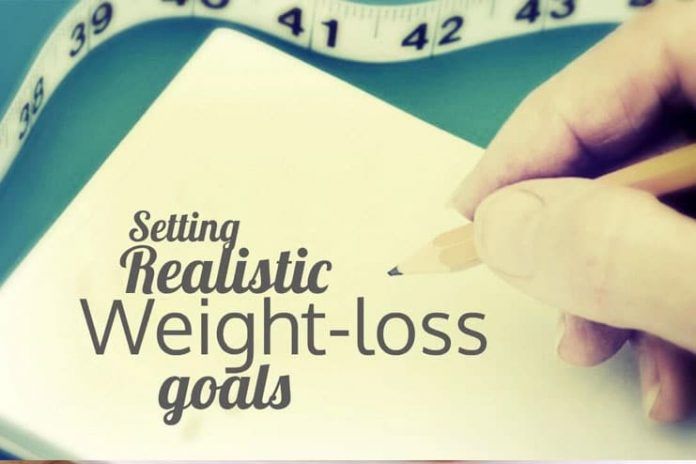Affiliate Disclaimer
Some links in this article are affiliate links. We may earn a small commission if you make a purchase through these links, at no extra cost to you. We only recommend products we find useful to our readersI had this friend who was desperately looking for ways to lose weight and she was aiming to lose 25 pounds in two weeks. If you are someone similar, understand that this is anything but the realistic weight loss goals.
Much like how you might have gained weight gradually and over time, it is necessary to shed off those extra pounds gradually as well. As confusing as it might sound, setting realistic weight loss goals is key to successful weight loss.
If you are unsure of how to set a realistic weight loss goal or even why it is important to set one, we have some insightful information up our sleeves.
When Do You Know You Need To Lose Weight?
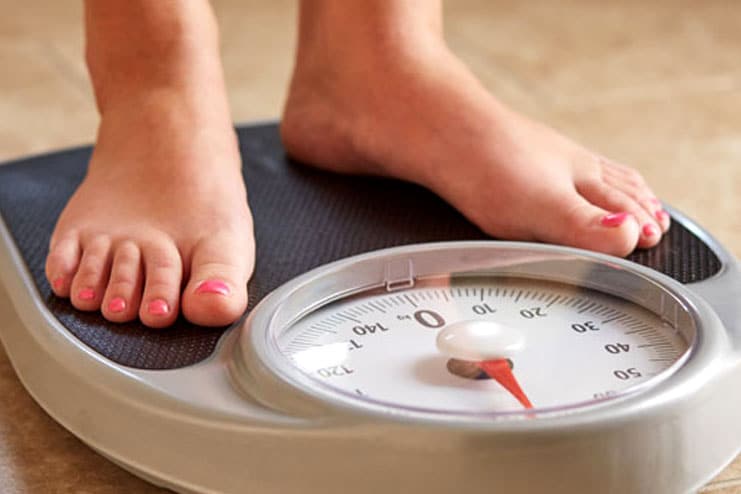
Before we set out to discuss about the realistic weight loss goals, it is important we discuss what criteria should drive you to think about your weight.
While the subsidiary reasons could be extensive, there are three scientific conditions that are a trigger for you to know that it’s time to start losing weight. They include:
- If your BMI is more than 25
- If your waist-hip ratio is more than 0.8 (women) and 1.0 (men)
- If your abdominal girth measures more than 35 inches (women) and 40 inches (men)
How To Set Realistic Weight Loss Goals?
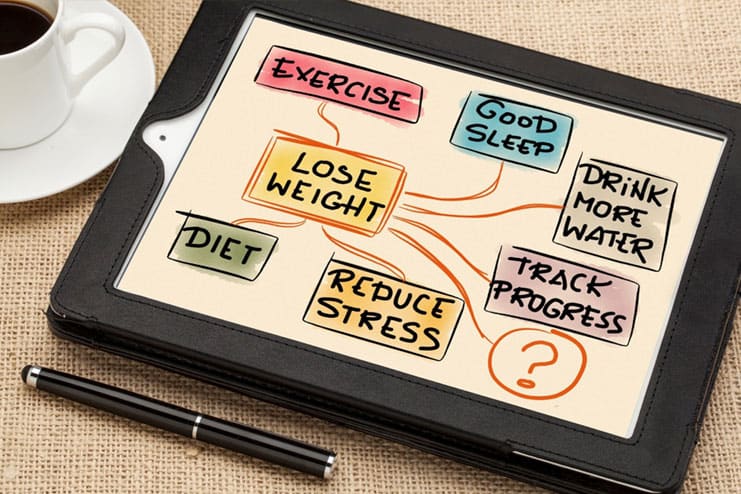
If you are on the process to achieve weight loss goals over the course of the coming months, it is necessary to ensure that you know the insights to how to set realistic weight loss goals.
You could imagine a lot and expect even more but at the end of the day, it comes down to you ensuring that the goals you are pursuing in terms of your weight loss are reasonable and actually possible to achieve.
Losing weight isn’t cakewalk. Not only does it require the necessary commitment and motivation, it requires a strategic planning as well.
So, how can you start setting realistic weight loss goals for yourself?
Check Out These Ways To Set Realistic Weight Loss Goals
1. Know your anthropometric measurements first
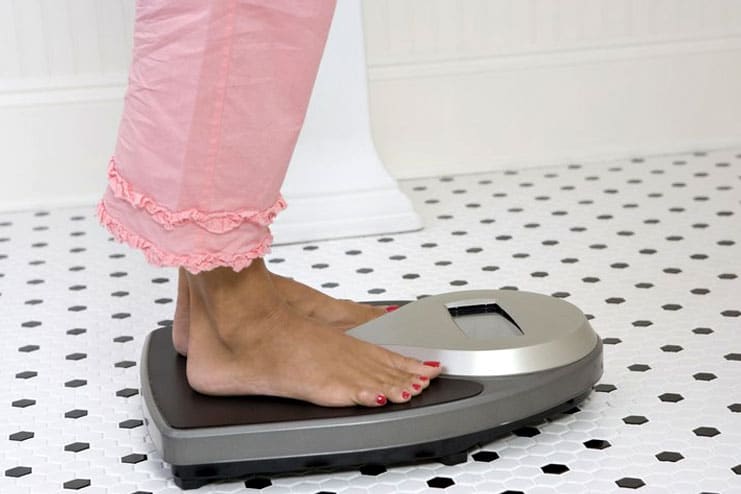
Often times, one of the most common obstacles faced by the people trying to lose weight is the fact that they aren’t aware of what is the ideal amount of weight they need to lose to be healthy.
When it comes to setting weight loss goals, the most important factor to watch out for is to ensure that you are aware of every aspect of your body measurements – from your body weight to your waist size and every other aspect involved.
Once you have noted them down, the next step is to compare the same with the standard measurements and criteria. If you find yourself on the slight overweight side, plan accordingly and lose the necessary amount.
If you are obese, chances are you will require more time to lose weight. Don’t rush through the process because that is often what ends up inflicting negative impacts on the body.
(It is an Ideal Body Weight Calculator)
If you are wondering what would be the ideal body weight, this above tool can help you get the sorted out effectively.
2. Set up a plan
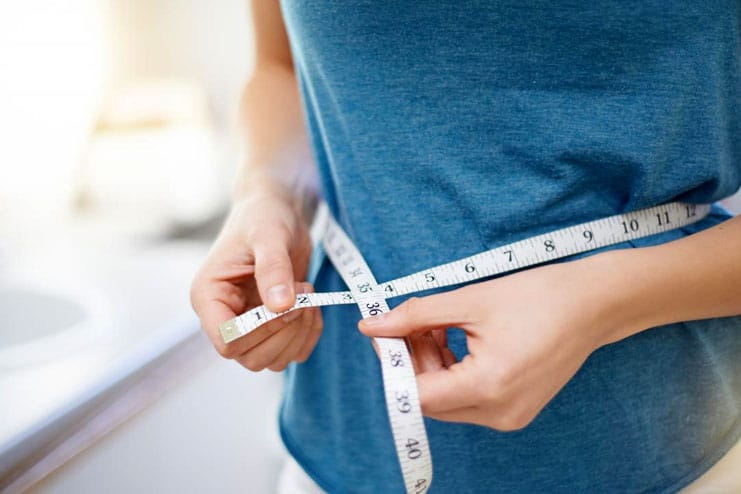
In order for you to successfully lose weight, it is important for you to start by setting up a plan for how you will go about with the same.
This plan could necessarily include anything, ranging from your weight to the amount you need to lose within the attainable time frame. It is quite important to ensure that the plans you set up include reasonable weight loss goals for you to be able to stick to them in the long run.
Many people set up plans for weight loss but the one thing that they fail to do is achieve them to stick to them which is what causes the problem in the first place. So, set up an actionable plan that actually works.
3. Start with Mini Goals

The next step on setting weight loss goals is to kick-start the same with mini goals and not skyrockets for the bigger ones. You can’t really expect to shed off a lot of weight right off the bat. If you wish to have a healthy weight loss journey, it is important to ensure that you take it one day at a time.
Aiming for mini goals for weight loss is actually beneficial in helping you shed off the weight in a linear way and helps you maintain the same as well. Start with setting realistic weight loss goals for a month and then work your way up from there.
If required, sometimes even play the whole “reward system” when you achieve something, trust me, it works like magic.
4. Lose weight gradually
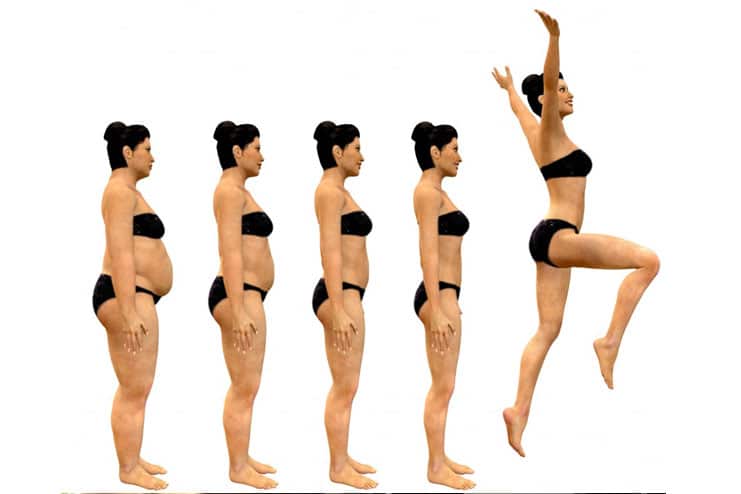
If you weren’t aware, weight loss is not a linear process. You can’t necessarily start losing weight only for it to stick around in a straight line. That is not how it works. You need to keep going with the process with determination to be able to lose weight effectively.
Irrespective of anything, it has often been seen that instead of having realistic weight loss goals, people tend to aim for higher goals, ones that are close to impossible to achieve. Not only do they put a strain on your health, they don’t even produce effective results in the end.
If you wish to achieve weight loss goals, it is necessary that you start with losing weight gradually and not right off the bat. Losing weight gradually also helps you maintain a good body shape which is also crucial to the overall weight loss process.
5. Adhere to a eating plan

Majority of the people stick with diets and while they work amazingly and will provide with all the necessary results, they aren’t necessarily the best when it comes to your health.
There are several diets where all you do is cut out a favourable part of food from your diet for good till you achieve weight loss goals. Truthfully speaking, that is anything but good because withdrawing from something that you love only ends up making it tougher for you to stick around with the diet plan.
While discussing about the realistic weight loss goals, one can definitely peek into the possibility of adhering to an eating plan instead of a diet. Eating plans are a healthier and a much more susceptible version of the diet in which you eat healthy but not necessarily cutting out everything from the diet.
Eating plans are for life, one that you can stick around with for longer periods of time and ones that don’t necessarily inflict any negative impacts on the body.
6. Track the progress you make
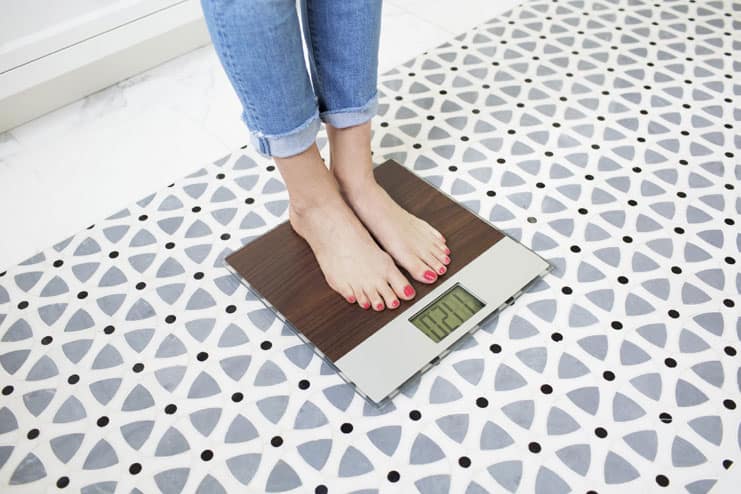
One of the most important aspect of setting realistic weight loss goals is to ensure that you track the progress that you are making.
If you are on a journey of losing weight with a goal in mind and with no trackers in the process, chances are that you will either end up losing weight in an unhealthy rate or even end up losing nothing because you keep no track of the same.
Keeping track of the changes every week or even every month works like magic and can help you attain amazing results in your journey.
If possible, try and maintain a journal for the same to be able to reflect back on them over time and see where you can make the changes for even better results. Even studies (R) (R) have proven the effectiveness of food journals.
7. Be realistic of the time frame
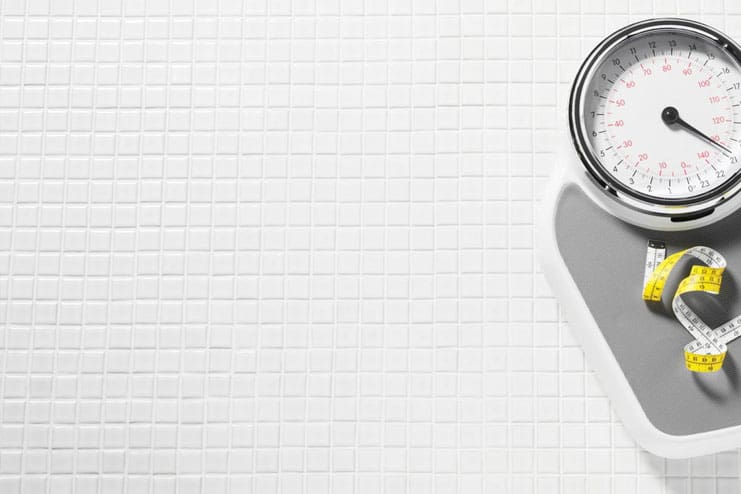
Often times, it is not the expected amount of weight one wants to lose that is the problem but the time frame is.
It is not surprising when you say you want to lose 20 pounds. You can obviously lose 20 pounds if you are determined enough. It is when you say you want to lose 20 pounds in 1 week is when the problem arises.
If you wish to have short term weight loss goals, you also need to have lesser expectations with the amount you will lose. It is not possible to lose that much in a week if you want to lose weight in a healthy way.
Be realistic of the time frame you challenge yourself with when it comes to the weight loss expectations. Don’t necessarily expect a lot because that is not how it works. Lose weight gradually because that will also give your body the time to accommodate the changes it is undergoing.
8. Understand how your body is reacting

This is one of those parts of the weight loss goals where you deduce how your body is feeling throughout the process.
Weight loss is not something that just affects your physical body; your mental health is affected too. If you successfully achieve your goals, chances are that you will be happy but if not, chances are that it will impact your mood and mental health.
Also, ensure that you are feeling better throughout the process of weight loss because that is key. If you are constantly tired or getting fatigued even doing the minimal tasks, chances are that you are not doing something or the other correctly in your overall weight loss routine. Instead of simply just going along with a diet plan, make sure that you choose the ones best aligned to your overall health.
Why Should You Set Realistic Weight Loss Goals?

While we have shared some effective ways in which you can set realistic weight loss goals, have you ever wondered why they are important to keep and assess?
You could simply just have any kind of goals for your weight loss and go about achieving them without any restrictions, so why is it that you should have reasonable weight loss goals?
1. For better health

Living a healthy life is everyone’s priority. While you are breaking about trying to shed off those extra pounds extrinsically, you also need to ensure that what you are doing is healthy. Instead of just belting out any sort of weight loss goals without any kind of achievable results from it, it is necessary you have goals that are achievable and the ones that won’t necessarily affect your health in a negative way.
It is very important to ensure that the goals you set for your weight loss journey will not just help you lose the weight but in the healthiest way possible.
2. For actually achieving the goals
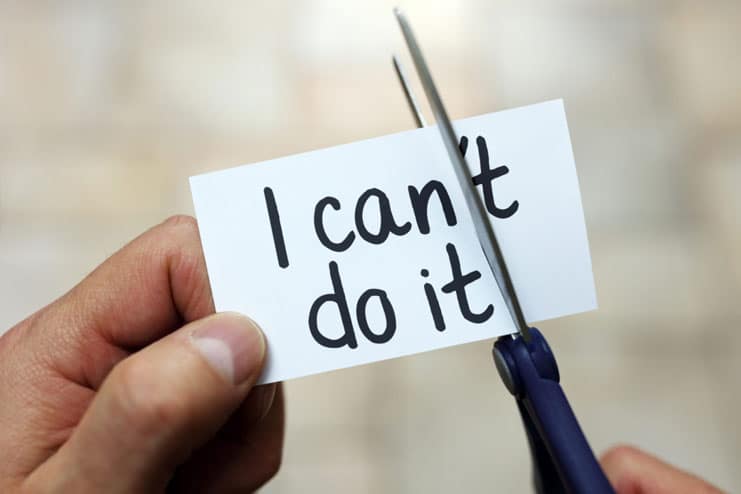
Often times, when we challenge ourselves with unrealistic weight loss goals, they end up affecting not just our body but it does become impossible to achieve the goals in plain hindsight.
Setting realistic weight loss goals actually help you achieve them in the long term. When you aim for something that’s actually achievable, it does become a lot easier to not just achieve them but to also actually have sight of what you want to end up achieving.
Not just that, when you have realistic goals for your weight loss, you actually end up achieving them and that is one of the most important mental boost you need to keep going on with it.
3. For a better body
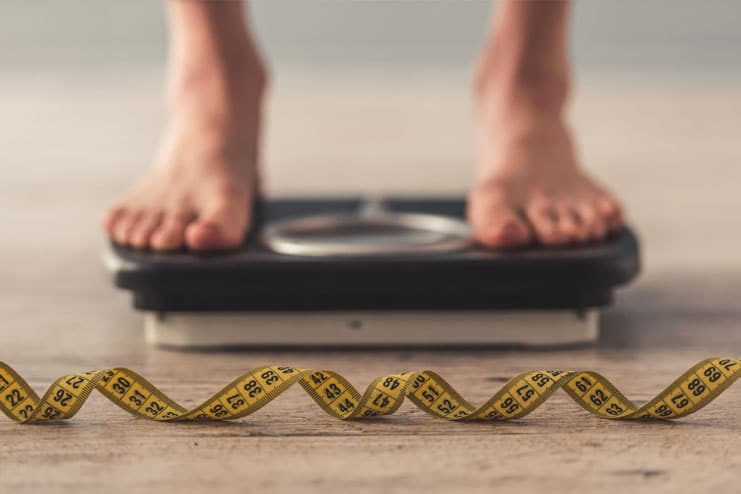
With reasonable weight loss goals, it does become a lot easier for you to attain a better body at a gradual pace, without any kind of rush involved in it.
When you do something with the sole intention of achieving your desired goal, it is actually effective in achieving the same.
Not just that, gradual weight loss also implies good impacts on your body shape and skin because the body gets time to adjust to the changes and shape up the way it should be, instead of becoming flabby and full of loose skin after weight loss.
What Are The Realistic Weight Loss Goals?
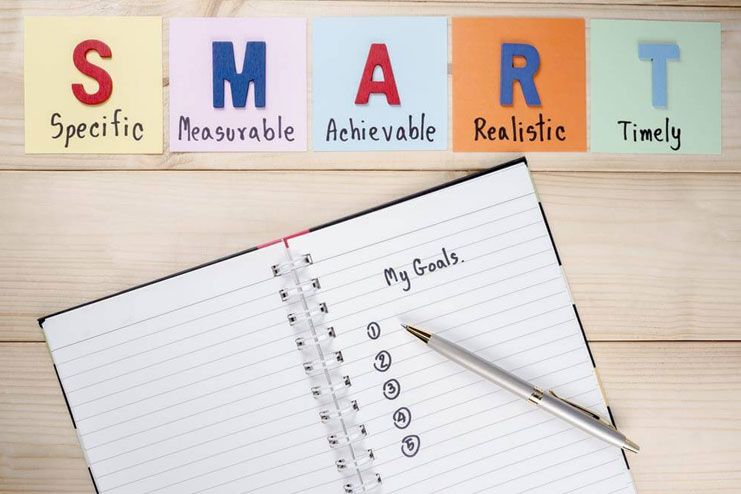
One of the most important prospects to achieve weight loss goals is to have goals that are actually reasonable and realistic enough.
If the goals you are aiming for are not even realistic enough, chances are that you will not even be close to achieving what you expected in the first place.
In order to help you set realistic weight loss goals, we have set around three levels for the weight loss.
- Beginner
- Intermediate
- Advanced
1. Beginner (less than 1 pound a week)
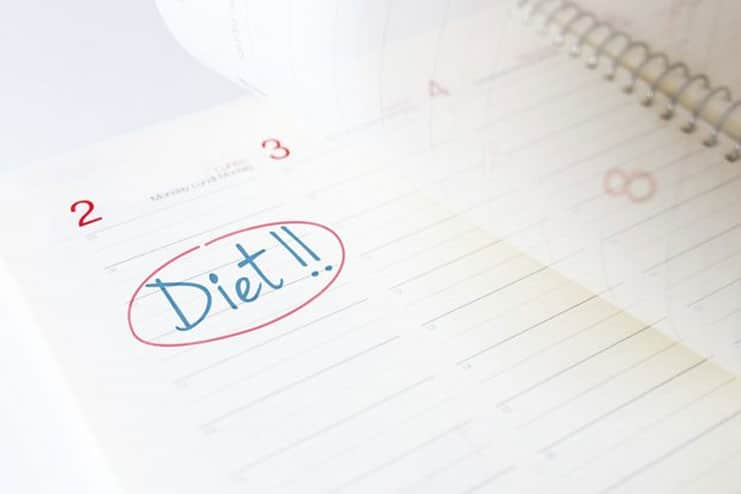
The very level is set around for the beginners or for the ones who don’t necessarily need to lose a lot of weight right off the bat.
If your weight loss goals on a general are not that high, aiming for losing less than a pound every week is actually effective enough.
This takes up around 10-15% of your daily energy deficit which is not even close to any form of vigorous training.
| Pros | Cons |
| Small changes to the overall diet | Long process of weight loss |
| Doesn’t leave you hungry | Minute attention to the diet |
| Doesn’t include any form of muscle loss | |
| Doesn’t impact endurance or muscle strength | |
| Doesn’t impose risks on metabolic slowdown |
2. Intermediate (1-2 pounds in a week)

The next level or the intermediate level is for the ones who wish to shed around 1-2 pounds every week. This does require for you to do more than just spruce up the diet. It does require a bit more indulgence into having an active lifestyle because that is what impacts the overall results you will achieve. Aiming to lose 1-2 pounds every day will require for you to spend 15-25% of the energy deficit every day.
| Pros | Cons |
| Includes more dietary restrictions but not too much to not be able to bear | Tiredness and fatigue are prevalent at times |
| Lower risks of muscle loss | Not suitable for someone who is already lean |
| Faster rate of fat loss in comparison | |
| Little to no risks to metabolic slowdown |
3. Advanced (More than 2 pounds in a week)

The last but not the least in the list is the advanced level which requires for you to lose more than 2 pounds on a weekly basis. It includes more than 25% of your overall energy deficit.
| Pros | Cons |
| Maximum weight loss | Consistent hunger pangs because of the strict diet |
| Resilient to food logging | Difficulty in long term adherence |
| Risks of metabolic slowdown | |
| Risks of muscle loss |
With all that being said, it should be more than clear why setting realistic weight loss goals is actually important for the overall health of an individual. If you wish to lose weight in a healthy way, make healthier choices and have an achievable goal for the same.
In this Article













